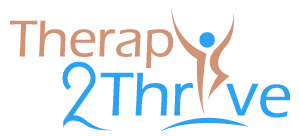Am I Oversensitive?
BLOG by Therapy2Thrive®
925-998-3392
Am I Oversensitive?
On my side of the room, I have never thought, “ugh, this person is so oversensitive” or “can’t they just get over it and move on”. What I see is that these are the statements my clients are speaking to themselves associateally. I have begun to wonder why so many of us negate our feelings when we are struggling and question if we should not in fact feel these feelings at all and chalk them up to our being “oversensitive”.
Well, I simply don’t believe there is anyone who is “oversensitive”. At our core, we are emotional beings and it is those emotions that make us who we are (for better and for worse). Our feelings and emotions are with us for good reasons. They are here to guide and protect us. They help us make decisions and they let us know when something needs attention. So why do we think that we are “oversensitive”? If you can relate to this, than it is worth taking a closer look at why you burden yourself with this perspective.
In essence I feel that “oversensitive” is a phantom. It is a perspective that has been handed to us from belief systems which pair “strong” with “emotionally controlled” and “weak” with “emotional and sensitive”. It will come as no big surprise to any reader of this post that a therapist disagrees with that, however my disagreement comes with the perspective that a significant part of the struggles we have are a result of our denial of and desire to avoid our feelings and emotions.
I truly understand why we wish we did not have to feel the full brunt of our emotions when they hit us full force. Life throws losses and hurts in our way and the feelings that come as a result often feel overwhelming. It is normal that when we are in emotional pain we wish we weren’t and it sometimes feels like more than we can handle. When we add onto that a critical and invalidating dose of “I’m just being oversensitive” it pushes us away from feeling the emotions that are there for good reason. It looks like this…we have hurt or loss and our hearts ache. It may be sadness, anger, anxiety, overwhelm, helplessness, or any other strong emotion. We have no choice but to feel those feelings because like it or not they are with us as a result of what we have gone through. Then, we start telling ourselves “I am just being oversensitive” which denies and invalidates those feelings…then we are stuck having strong feelings and at the same time telling ourselves we should not be having those feelings and that doesn’t allow us to move through them.
When I work with clients who are in a lot of emotional pain I often start by finding out how much they may be criticizing themselves for having feelings and emotions that are completely reasonable and understandable given their situations. We often find that what occurred to cause those feelings is deeply impactful and the feelings and emotions they have as a result are just what they should be.
The good news is that this is something we can really shift. An important part of therapy is to help my clients let go of telling themselves they are oversensitive and on to listening to what their feelings and emotions are telling them. This allows them to make important decisions, to grieve, to heal, and make changes in their lives that bring more peace and healing in their lives.
However, this isn’t only something we can work on in the counseling room. So, what can we do ourselves about the feeling that we are being oversensitive? How can we move toward healing our hurts if we negate their validity? Here are a few steps to move toward self-acceptance, emotional validation, and healing.
1 – Identify what you are feeling by naming the emotions. Rather than using words like “I feel upset” or “I am so pissed off” ask yourself what the feelings are and call them what they are such as sad, overwhelmed, angry, or hurt.
2 – Allow yourself to accept those feelings without judgment. This does not mean you have to act on them or that they will be with you forever but weather you accept or reject them, those feelings are with you for good reason.
3 – Sort out your feelings (as there is usually more than one or two) and ask yourself to name what contributes to your feeling this emotion. If you have someone you trust with whom you can talk it through, that often helps. However, you can also journal or just take the time to sit down and think them through.
4 – Pursue acceptance of your emotional world. When you understand what you feel, and what goes into your feeling it is much easier to validate those feelings and emotions.
5 – Remember that kindness and acceptance lead to healing and growth as opposed to rejection and invalidation that lead to disconnection and isolation. You can offer kindness and healing to yourself when you are struggling.
It is my hope my clients will find kindness for themselves as they travel their paths. Life is full of wonderful experiences and emotions as well as challenges and hurts. I don’t see any way it is helpful to us to deny our emotions by writing them off as our being “oversensitive”. Be kind to yourself, you will be glad you did .


Therapy2Thrive® brings Hope for Healing
Our counselors at Therapy2Thrive® provide compassionate, practical, and evidenced based practices to assist you in the therapeutic process to meet your goals and find hope to heal the challenges you are facing.
Contact our family counselor in Pleasanton for private consultation.
